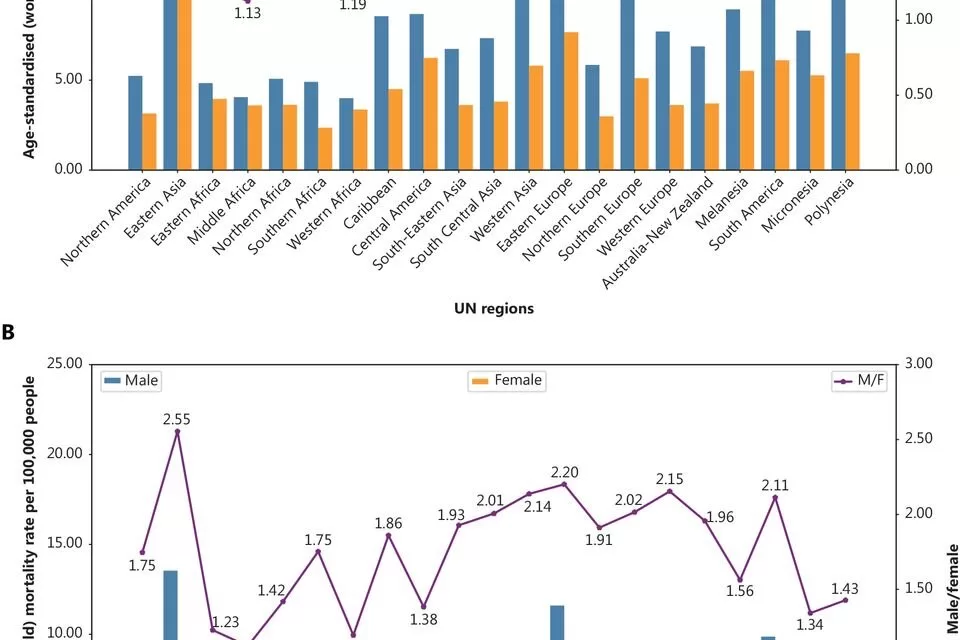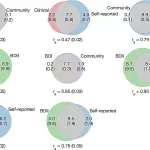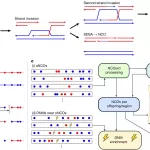A comprehensive global study has unveiled a troubling trend in the incidence of gastric cancer, revealing a significant rise among younger adults over the past 15 years. Once primarily affecting older populations, this disease is now emerging as a growing threat to younger demographics, necessitating a reevaluation of global health strategies and targeted interventions.
Published in Cancer Biology & Medicine by the National Cancer Center in China, the study analyzed extensive data spanning from 2003 to 2017. The findings indicate a notable shift in the epidemiology of gastric cancer, particularly in regions like Europe, Oceania, and North America. The research, which utilized the GLOBOCAN 2022 database and CI5 volumes X–XII, highlighted nearly 968,000 new cases of gastric cancer and 660,000 associated deaths globally in 2022 alone.
A Shift in Disease Patterns
Traditionally linked to aging populations, gastric cancer is now increasingly diagnosed in younger adults, with cases in this demographic often proving more aggressive. This trend marks a stark departure from historical patterns and poses new challenges for early diagnosis, prevention, and treatment.
Dr. Wanqing Chen, the study’s lead researcher, emphasized the urgency of the findings:
“The rise of early-onset gastric cancer is not merely a medical issue—it is a global health crisis. Our research calls for the development of specialized prevention strategies aimed at younger populations to curb the impact of this growing health threat on both individuals and health care systems.”
Factors Driving the Increase
The study identified several potential contributors to the rise in early-onset gastric cancer, including changing lifestyle patterns, dietary habits, and increasing rates of obesity among younger generations. A weak correlation was observed between the Human Development Index (HDI) and the disease’s incidence, with some high-HDI Asian countries experiencing elevated rates of gastric cancer.
Regional and Gender Disparities
East Asia continues to bear the heaviest burden of gastric cancer, with significantly higher mortality rates among men than women across all geographic regions. While overall global cases of gastric cancer are declining, the increase in younger populations signals a worrying shift in the disease’s dynamics.
Call for Targeted Interventions
The study underscores the urgent need for public health interventions tailored to younger adults. This includes:
- Age-specific prevention strategies: Addressing lifestyle factors such as diet, obesity, and smoking.
- Enhanced early detection programs: Developing screening methods better suited to younger populations.
- Global collaboration: Sharing best practices and research findings across borders to combat this growing health crisis.
Implications for Healthcare Systems
If left unchecked, the rise in early-onset gastric cancer could place significant strain on healthcare systems worldwide. Early-stage detection and treatment are critical to reducing late-stage diagnoses, improving patient outcomes, and easing the financial burden on health care infrastructures.
By prioritizing targeted prevention and research, global health authorities have an opportunity to reverse the rising trend of gastric cancer in younger adults and safeguard future generations.
More Information:
Nuopei Tan et al, “Global, regional, and national burden of early-onset gastric cancer,” Cancer Biology & Medicine (2024). DOI: 10.20892/j.issn.2095-3941.2024.0159.











